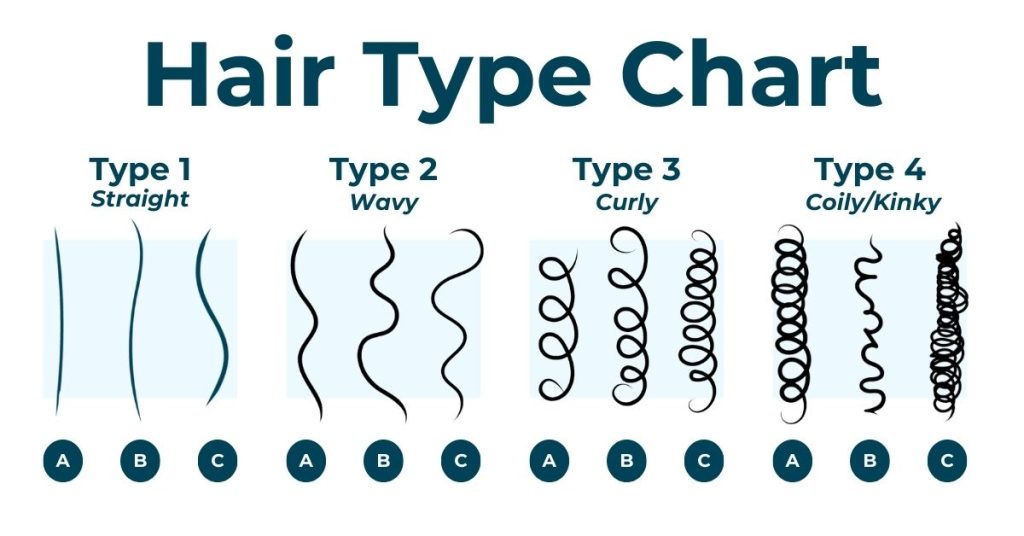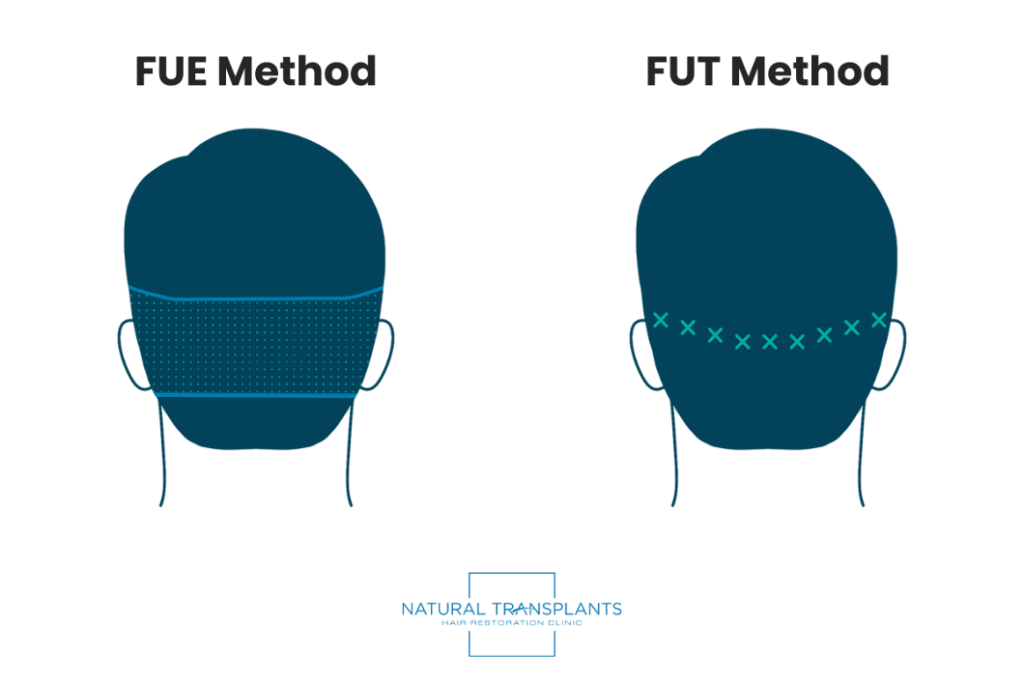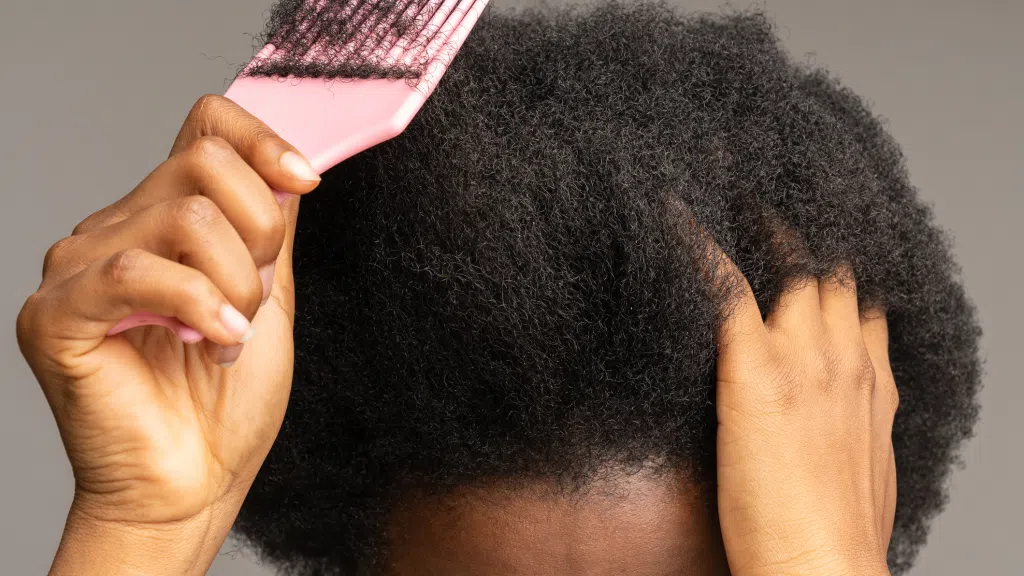Each afro hair texture type is as beautiful and unique as the person who grows it! Hair plays a huge role in people’s culture, identities, and self-expression.
But, the unique characteristics of black hair can make care and maintenance a challenge. African American hair types tend to be more curly. They can range from curly and springy to tight and coily.
So, how can you protect your afro hair? In this article, we review hair care based on your hair type, plus, we’ll tell you what you need to know about afro hair loss.
What is Afro Hair?
Black hair (or afro hair) has a unique texture, which is typically curly, coily, or kinky. This hair type is most commonly found among men and women of African descent.
Unlike straight hair types, Afro hair is often denser and more prone to shrinkage. This means it appears much shorter when dry than it does when wet and stretched out.
There are four types of hair categories – from type 1 straight hair to type 4 coily hair. A majority of African-Americans tend to fall into the type 4 curl types, which is more kinky and coily.
Afro Hair Types
Within the “type four” category, there are three different subtypes of afro textured hair. Each pattern has distinct characteristics that define the hair type, and range in appearance.
4A Type
The 4A type hair has tight curls with a certain “bounciness” to it. The hair forms an “S” pattern. The coils are not as interlocked as 4B or 4C curls, and each strand independently curls or spirals away from other neighboring strands.
4B Type
The 4B type hair has sharp angles rather than curls, which forms a “Z” pattern. The curl pattern is less defined than type 4A curls but more defined than type 4C coils.
4C Type
The 4C type hair features tight coils and includes a mixture of S and Z patterned hair. This makes it more dense and coarse compared to other hair types.

Hair Care for Afro Hair
To care for type four hair, it’s essential to establish a consistent hair care routine.
General Tips for All Type 4 Hair
- Do not frequently shampoo. Overshampooing can strip your hair of its natural oils, making it dry and brittle.
- Be gentle when washing and detangling your hair. Use a wide-toothed comb or your fingers in the shower when your hair is wet and coated with conditioner.
- Dry your hair by gently squeezing it with a microfiber towel or soft cotton t-shirt. Air dry whenever possible, but if you must use heat, use a diffuser.
- Protect your hair at night by wearing a satin or silk bonnet while you sleep. By doing this, you can reduce friction and breakage. You can also opt for a satin pillowcase.
- Drink plenty of water throughout the day! This helps to keep your hair properly hydrated.
- Use moisturizer to bring dry and damaged curls to life. Type 4 hair tends to be dry, so go for some leave-in conditioner, creams, or oils to lock in moisture.
- Avoid wearing hair styles that pull your hair, like braids, cornrows, and dreadlocks for long periods of time.
- Take care of your scalp – cleaning the scalp promotes healthy hair growth.
4A Hair Care Tips
- Moisturize your hair consistently. 4A hair trends to retain moisture well. But, you should still hydrate regularly with leave-in conditioners and moisturizing creams.
- Avoid overly heavy products. 4A hair is less prone to shrinkage, and heavy products can weigh down your curl pattern. Go for lightweight, water-based products.
- Use curl-defining gels or creams to enhance the natural “S” pattern of your hair. Apply them while your hair is wet.
4B Hair Care Tips
- Detangle gently with your fingers or a wide toothed comb when your hair is wet and coated with conditioner. 4B hair is prone to more tangling because of the sharp “Z” pattern.
- Seal in moisture with the LOC (liquid, oil, cream) method. Use a water-based leave-in conditioner, then a natural oil, and seal it in with a cream.
- Focus on your scalp health. Use a light oil or scalp serum to promote hair growth and reduce dryness or dandruff. A cleansing conditioner free of sulfates and filled with hydrating ingredients can help.
4C Hair Care Tips
- 4C hair does not retain moisture well, so stay on top of your moisturizing routine! Use heavy, deeply hydrating products like butters, creams, and oils. The LOC or LCO (Liquid, Cream, Oil) method works well.
- Finger detangle when your hair is wet and coated with conditioner to avoid breakage. 4C hair is fragile and delicate, so start from the ends and work your way up to the roots.
- Avoid heat styling, as 4C hair is more susceptible to heat damage, which can lead to breakage and damage to your curl pattern.
Afro Hair Styling and How It Affects Hair Loss
A common issue with afro hair loss is the hair styles women and men choose to wear, and how they wear them.
Tight hairstyles like braids, cornrows, plaits, dreadlocks and twists are a great look. But, if worn too tightly for a long time, they can lead to damage.
Constant tension on your hair can lead to traction alopecia – hair loss caused by continuous pulling of hair. Over time, the roots and hair follicles weaken and this can lead to permanent hair loss.
Are there other things that affect hair loss with Afro Women and Men?
Like anyone, there are several other factors that can contribute to hair loss for those with afro hair:
- Genetics
- Diet
- Stress
Hair Transplants for Traction Alopecia
For African Americans with 4 type hair that experience traction alopecia, a hair transplant can be a great long-term solution for regrowth.
There are two types of hair transplants – the FUE technique and FUT technique.
- The FUT technique, known as the “strip method”, removes a strip of skin with significant hair density from the scalp and uses it to create donor grafts transplanted to thinning areas.
- The FUE technique, known as the “punch method” extracts single hair follicles.

Overall, the strip method doesn’t work as much as punch for Afro hair. African Americans that have curly hair, and with the strip method, you could knick it and kill the folic root for FUE. The root of the hair transplant adds very limited hair growth if any.
So, to summarize, the FUT transplant is a much better option for African Americans.
Natural Transplants is a Leading Clinic for Treating Traction Alopecia
Located in the United States, with clinics in Fort Lauderdale, Florida and Bethesda, Maryland. We offer a travel incentive for our patients that are not located near our clinics.


